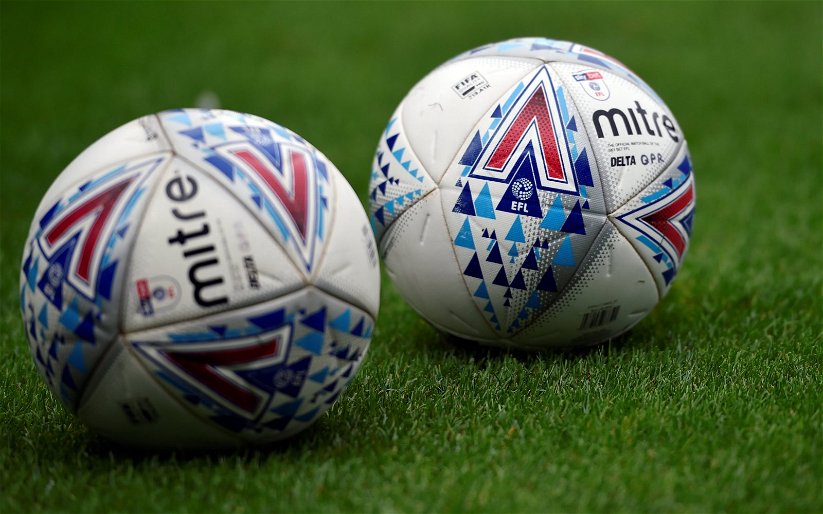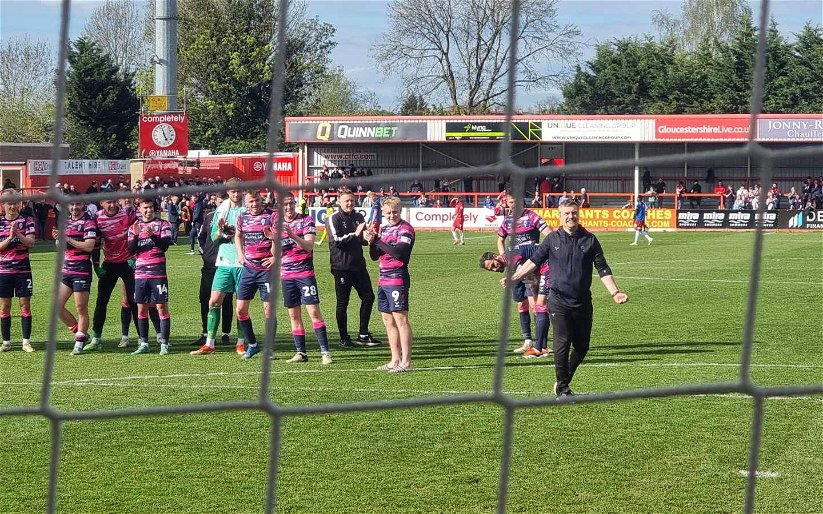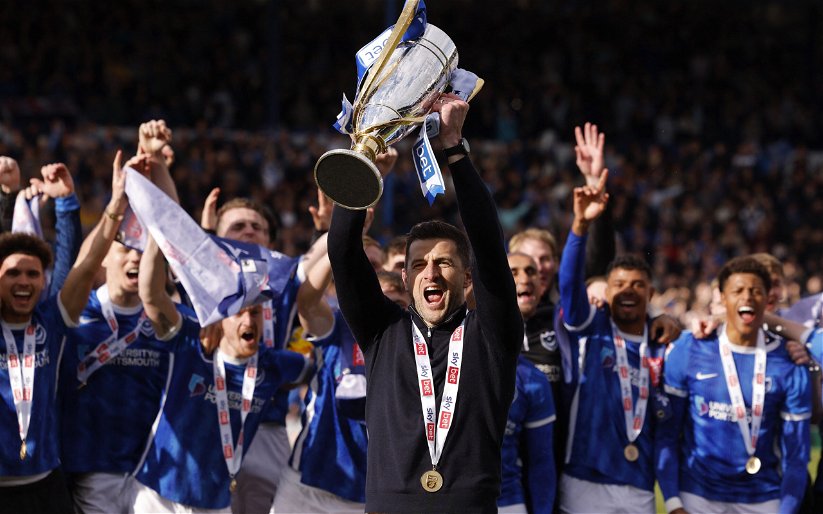There is an old adage that says it is never easy being the son of a successful father, and Nigel Clough has had to deal with that for the whole of his 53 years. Son of legendary player and manager Brian Clough, it was almost inevitable that Nigel would follow his famous father into the world of football, and fortunately, he had the talent in abundance to take him there. Far from restricting his career to the playing side, Clough has also achieved great things as a manager.
Born in Sunderland where his father had been forced to end his playing days a couple of years earlier, Nigel grew up in Derby after Clough Snr moved there to manage County in May 1967. The young boy gained a fantastic insight into the game and into football management as his father blazed a trail through English football throughout the Seventies and Eighties. Indeed, it was very often first-hand experience: many photographs exist of a young Nigel sitting in the Forest dugout during matches. Quite how the players viewed that is not known, but his experience of life within a top football club was already ingrained by the time Brian brought Nigel to the City Ground from non-league Heanor Town. Having appeared for Forest in a pre-season friendly defeat at Dundee United in August 1984, Clough signed for Forest in September 1984.
There were immediate murmurings of nepotism of course, but Brian was never going to be influenced by that. In his playing days at Forest, his father referred to him simply as ‘the No.9′ and treated him exactly the same as any other player. And if nepotism was the name of the game, whatever happened to the playing career of brother Simon Clough?
Forest’s golden age was over by that stage, although they were still a very strong First Division club and a force to be reckoned with. Playing as a deep-lying centre forward in the same mould as his father, Nigel made his Forest debut at the age of 18 on 26 December 1984 in a 2-0 home win over strugglers Ipswich. He went on to make nine league appearances that season, scoring his first goal in a 1-1 draw at home to Watford on 4 May. Forest finished a disappointing ninth, and better things were expected next season.
Clough started the 1985-86 season as an automatic fixture in the side. He scored his first goal of the season towards the end of September – again at home to Watford – and went on to top the Forest scoring charts in his first full season with eighteen. At the age of just twenty, he was voted Forest’s Player of the Season. It was another season to forget for Forest, who finished eighth, but an excellent start for Clough. He also made his England U21 debut in a 1-0 win in Denmark on 12 March 1986, the first of fifteen caps. He warmed up for the 1986-87 season in spectacular fashion, scoring an incredible fourteen goals in pre-season including five against Aarhus. It was another mediocre season as Forest finished eighth again, but Clough finished top scorer for the second successive season with sixteen.
Forest returned as a real force in 1987-88. Clough had another excellent pre-season with nine goals in three games, and carried that form into the regular season as Forest finished third. There was an excellent run in the FA Cup before going down 2-1 to Liverpool in the semi-final. Clough scored his first competitive hat-trick in a 4-0 win over QPR on 13 December 1987, and again finished top scorer for the third year in a row with 22. He was voted Player of the Season for the second time, and Lincoln fans will remember him scoring in the Conference Trophy Presentation game at Sincil Bank in May. Father Brian had the honour of officially opening Lincoln’s new St Andrew’s Stand that day. At the end of the season, Italian club Pisa made a bold move to sign Nigel for £1.5 million, but he remained at Forest.
The 1988-89 season followed a similar path as Forest again finished third, but it would be the cups that generated maximum excitement. Forest won the League Cup, beating holders Luton 3-1 with two goals from Clough on his Wembley debut. Their FA Cup run was again ended by Liverpool in a semi-final replay, but Forest returned to Wembley for the second time in three weeks to win the Full Members Cup with a 4-3 victory over Everton. Clough finished top scorer for the fourth season in a row with twenty-one, and made his full England debut on 23 May 1989 in the Rous Cup against Chile at Wembley.
It was going to be difficult to equal those achievements in 1989-90, and Forest did indeed slip to ninth in the First Division. Forest retained the League Cup with a 1-0 win over Oldham, but it was a quieter season in front of goal for Clough, whose twelve goals saw him finish second behind Steve Hodge. Forest had another good season in 1990-91, finishing eighth and returning to Wembley for the FA Cup Final. They left empty-handed after losing 2-1 to Spurs, and father Brian’s last chance of winning the FA Cup had gone. Nigel collected his second hat-trick for the club in a 5-4 League Cup defeat at Coventry in November, and scored his 100th goal for Forest in the 3-0 win over the same opponents on 12 January 1991. He also finished top scorer for the fifth time in six seasons with 20.
The cups again provided the excitement in 1991-92, with another eighth place in what was to prove the final season of the First Division. Forest won the Full Members Cup for the second time in three years with a 3-2 win over Southampton, and a fortnight later they were back at Wembley for the League Cup Final. On this occasion, they were beaten 1-0 by Manchester United, and the game also signified Brian Clough’s last ever appearance at Wembley before retirement the following year. Forest also reached the quarter-final of the FA Cup before losing 1-0 at Portsmouth.
It is entirely fitting that Brian Clough was the man to lead Forest into the brave new world of the FA Premier League in 1992-93, but very sad that his side became the very first to be relegated from it. Quite unexpectedly, Forest had a terrible season and went into their final home game needing a win over relegation rivals Sheffield United. Brian Clough had already announced his retirement and it was always going to be an emotional day regardless of the result. As it happened, Forest lost 2-0 and Clough’s glorious reign ended with relegation. The last rites took place at Ipswich a week later with another defeat. It was also entirely fitting that the last goal in Brian Clough’s last game was scored by Nigel, a 64th-minute penalty, in a 2-1 defeat. And that was that for the Cloughs at Nottingham Forest, at least for a while. Brian went into a well-earned retirement as a legend of the game, while Nigel decided to move on amidst a wealth of speculation. He ended his final season as top scorer for the sixth time.
And as a final response to those who accused Brian Clough of nepotism, Nigel eventually racked up 411 competitive appearances for Forest during his two spells at the club and remains their second-highest goalscorer of all time with 131 (behind Grenville Morris, who scored 217 between 1898 and 1913).
Wishing to remain in the Premier League, Clough joined Liverpool on 7 June 1993 for £2.28 million. Liverpool had suffered a poor season in finishing sixth and saw Clough as the man to reignite matters in front of goal. However, it was not to be. Having won his fourteenth and final England cap came two weeks later on 19 June, he made his Liverpool debut on 14 August 1993 and scored both goals in a 2-0 win over Sheffield Wednesday. He scored again in the next match, a 3-1 win at QPR, and again in a 2-1 home defeat to Spurs to end his first month at Anfield with four goals. However, it was to be another inconsistent season for Liverpool, and they went the whole month of September without scoring and losing all four games. Clough soon lost his place to an eighteen-year-old prodigy called Robbie Fowler who exploded onto the scene with all five goals in a 5-0 League Cup win over Fulham at the start of October. Manager Graeme Souness departed in January to be replaced by Roy Evans, and the writing was on the wall already for Clough. He was destined to make only two league starts in two years for Evans and it became clear that a move away was necessary. His Anfield nightmare ended on 24 January 1996 when he joined Manchester City for £1.5 million, and he took a significant pay cut to do so. In all, he scored nine goals in 44 appearances for Liverpool.
Unfortunately, the club he had joined was fighting relegation from the Premier League and about to embark on the worst period in its history. Clough went straight into the side, scoring twice in fifteen games. City went into the final game of the season – ironically at home to Liverpool – needing points to stand any chance of staying up. They drew 2-2, but went down anyway.
And so began a season of comedy at Maine Road under chairman Francis Lee. Manager Alan Ball was sacked in August 1996, to be replaced by caretaker manager Asa Hartford. Hartford oversaw a 5-1 aggregate thumping in the League Cup by Lincoln before he was replaced by Steve Coppell. Coppell resigned after six games, claiming the pressure was too great. Former England international Phil Neal had a go next, and survived until December. Frank Clark then came in and took the side to a bottom-half finish. Amidst all that, Clough lost his place at some point through injury and returned to Nottingham Forest for a three-month loan on 20 December 1996. After scoring one goal in thirteen games, he returned to Maine Road to feature occasionally in a struggling side.
The 1997-98 season was even worse. Completely out of first-team reckoning, Clough joined Premier League Sheffield Wednesday on loan in September 1997 but made just two appearances. Having returned to City, he failed to make a single appearance for them all season as the club plummeted into the lower divisions for the first time in their history. Clough started the 1998-99 season in the Second Division with City but made no more appearances. In October 1998 he was given a free transfer with the remaining nine months of his contract paid up. In all, Clough managed 43 appearances for City, scoring five goals.
So what next? At 32, Clough could easily have dropped down the divisions and played out his career very comfortably. However, he surprised the football world by taking the job of player-manager at Southern League Premier Division club Burton Albion on 6 October 1998. Indeed, even Brian suggested Nigel had accepted an easy life by managing a team of part-timers rather than a professional (i.e. a Football League) club. Nigel has since refuted that unequivocally, stating that the problems and challenges that exist in management are common to every club. There was a family connection of a kind: Peter Taylor had been the manager of Burton Albion in 1965 when he first linked up with Brian as Hartlepools’ assistant manager.
Clough had no intention of retiring as a player of course, and would go on to make well over 200 appearances for the Brewers in addition to almost 500 in his professional career. He took over a Burton side that had finished third in the table in 1997-98 but was in mid-table this time around. It is worth noting at this point that the Burton chairman was none other than Ben Robinson, who remains chairman to this day. Robinson expressed surprise that he had landed the former England international, but it was the start of a chairman-manager relationship that was set to endure.
If Clough thought it was going to be at all easy, that would have disappeared after he lost his first game as a manager 2-0 at Bath City. He had to wait until 19 December for his first league win (1-0 at Tamworth) in his seventh game, and thing slowly picked up thereafter as Burton finished thirteenth. His first full season of 1999-2000 saw Burton finish second in the table, albeit fourteen points behind champions Boston. History has now shed some light on that, which will not be discussed here. Burton were runners-up again the following season, finishing three points behind champions Margate. The final day fixture against Margate might have been a cracker, had the title not been lost already.
Burton transferred to the Northern Premier League for the 2001-02 season and made no mistake, taking the title with 104 points and earning promotion to the Conference (no Conference North or South in those days). Life in the Conference proved a more difficult proposition, and Burton survived by just three points in sixteenth place in their first season. The side improved slowly, finishing fourteenth in 2003-04 before slipping back to sixteenth again in 2004-05.
And then came the season that changed the destiny of the club. Further to the opening of their new £7 million Pirelli Stadium in July 2005, Burton had their best season since promotion in finishing ninth. But it was the FA Cup that changed everything. Wins over Leek Town (2-0), League Two Peterborough United (1-0 in a replay), and Burscough (4-1) gave Burton the dream draw: Manchester United at home. The record books show a fantastic 0-0 draw at the Pirelli followed by a 5-0 defeat at Old Trafford in the replay, but the financial rewards were the key element. A crowd of 53,564 generated an estimated £800,000 windfall for Burton, and that was put to very good use in paying off stadium debts and building a squad capable of achieving the ultimate aim: the Football League. Clough has since said that it was the single most important event in the rise of the club.
However, it took a few more seasons to get there. There was a near miss in 2006-07, with Burton falling three points short of the playoffs in sixth place. Burton went one better in 2007-08 and made the playoffs in fifth place, but a 4-3 aggregate defeat to Cambridge in the semi-final put paid to promotion hopes for another twelve months. One notable event from the 2007-08 season was Nigel Clough’s final appearance as a player, which came on 12 February 2008 as a late substitute in a 3-0 win over Droylsden in the Conference Premier.
Burton started the 2008-09 season like an express train and looked certainties for that elusive promotion to the Football League. Then came a bombshell: Clough accepted the vacant manager’s job at neighbours Derby County on 6 January 2009. Burton were thirteen points clear at the top of the Conference, had just won eleven successive games and Clough had received the Manager of the Month award for December. It would have been easy to remain at Burton and accept the accolade of promotion. On the other side of the coin, he had been there for ten years, and one has to wonder why he had not moved on before. One of the reasons Nigel stayed at Burton for so long was that his kids were settled at school and he did not wish to disrupt that. Whilst the desire to test himself at a higher level was clearly there, he simply chose to put his family first. The timing was now right.
So it was off to Derby, the club his father took to its first ever Football League title in 1972. Derby had been relegated from the Premier League in May and expected a swift return. It had not happened, and previous manager Paul Jewell had quit the previous week with Derby only five points clear of relegation. Clough lost his first two games before four successive wins created a bit of breathing space. There were to be only three more wins, however, and Derby finished eighteenth. Both cup runs were ended by Manchester United – in the semi-finals of the League Cup and the fifth round of the FA Cup. Clough made major changes to the playing squad for 2009-10 and over 21,000 season ticket holders expected a promotion challenge. Unfortunately, the revolving door created a lack of consistency, and a club record forty players appeared during the season including fourteen brought in on loan. Derby ultimately finished fourteenth and well short of the playoffs.
Far fewer changes were made to the squad for 2010-11, with the directors wishing to rein in club finances after several seasons of largesse. Despite having to operate with a much-reduced budget, Derby got away to a good start. A 2-0 win at Ipswich in November left them fourth, but Derby then plummeted down the table with a run of four wins from their last twenty-eight games. They finished seven points clear of relegation in nineteenth, but it was another disappointing season. The total of 49 points was the club’s worst ever return from a 46-game season. Furthermore, a 2-1 defeat in the FA Cup third round to Conference leaders Crawley (managed by Steve Evans, of whom more later) led to calls for Clough’s dismissal.
The 2011-12 season initially followed a similar pattern. Derby won their opening four games, their best start since 1905, and remained in the top three to the end of September. Rumours of a return to Forest began to circulate and Clough signed a new three-and-a-half-year contract in October. Then came the swallow-dive: a run of one win in twelve games dropped Derby into the bottom half. The form remained inconsistent and they eventually finished twelfth. Interestingly, Derby’s top scorer that season was none other than future Lincoln FA Cup hero Theo Robinson.
Derby were more consistent in 2012-13 without ever really threatening the top six. They lost only four games at home, and all by a single goal margin. The tenth-place finish was the best under Clough’s tenure and hopes were high for the following season. Once again, it never happened. After a defeat at Forest on 28 September, 2013 had left Derby in the bottom half, the board finally lost patience and Clough was dismissed. Despite a notable lack of success during his four years there, he was actually the fourth longest-serving manager in the top four divisions at the time.
Clough was soon back in work, appointed manager of League One Sheffield United on 23 October 2013. It was to prove his most successful season for some time despite taking over a side in the bottom four with just two wins to its name. United slowly climbed the table before seven successive wins in February and March raised hopes of a late run for the playoffs. Eventually, they finished seven points short in seventh place, but that was as much to do with a terrific run to the semi-finals of the FA Cup as anything else. United led Hull 2-1 at Wembley at half time before the Premier League side emerged 5-3 winners. The run earned Clough the LMA FA Cup Manager of the Year Award for 2013-14.
The cup theme continued into 2014-15 with a vengeance, and the fact that they remained in contention for the playoffs is worthy of note. Having reached the FA Cup semi-final the season before, this season it was the turn of the League Cup. United eventually lost 3-2 on aggregate to Spurs in the semi-final, and this was followed by a run to the fourth round of the FA Cup where they lost to Preston. The play-off place was secured in relative comfort, but they went out in the semi-final to Swindon after an astonishing 5-5 draw in the second leg. Even more astonishingly, the board of directors terminated Clough’s contract on 25 May, claiming that a different direction was needed. Apparently, two major semi-finals and a play-off campaign in eighteen months were not enough.
And so the management wheel turned full circle. After six months out of the game, Clough was appointed manager of Burton Albion on 7 December 2015. Burton had won promotion from League Two in May and had gone straight to the top of League One after an excellent start to the season. No one really thought the tiny club could make it all the way to the Championship but that is exactly what happened. With the exception of a six-game winless run in April, Clough kept the momentum going and Burton were promoted in second place with a final day draw at relegated Doncaster.
Life in the Championship in 2016-17 was going to be far harder, and no one really thought they could stay up. Yet they did, by a single point, and with a game to spare. Interestingly, Wigan Athletic – the team that had pipped them to the League One title – went straight back down again. An unwelcome diversion arose in January 2017 when Clough again rejected the chance to manage Forest. Firstly, there was a sense of loyalty to Burton, who were fighting to stay in the Championship; secondly, he must have been concerned by the turmoil at Forest at the time; and thirdly, he thought it was not the right time. The door has been left open though, so watch this space.
The prophets of doom were out in force again in 2017-18, and this time they were right. A valiant season-long battle for survival went to the final day: a win at Preston would have kept Burton up, but they went down 2-1 to a 93rd-minute winner. There was financial compensation in the form of another cup tie at Manchester United in front of another 50,000+ gate.
Consolidation was the name of the game in 2018-19, and a play-off challenge was only just over the horizon. The season was notable for another Clough-inspired run to the semi-finals of a cup competition, this time in the League Cup. Unfortunately, hopes of Wembley were shattered with a 9-0 defeat at Manchester City in the first leg, and a 10-0 defeat on aggregate. And thus did Nigel Clough complete twenty years in football management.
As a fascinating footnote, Boston United manager Steve Evans once referred to Burton as ‘a pub team’. I wonder where both of those teams are now? Evans and Clough have not had a great relationship throughout their careers, a similar spat erupting when Evans was manager of Crawley a few years later. It should certainly be an interesting meeting when Burton play Gillingham this season. One thing is for sure: Nigel Clough has taken that pub team an awful long way.

Key:
P = Promoted; R = Relegated; SF = Lost in play-off semi-final; F = Lost in play-off final; PO = Won play-off final; D = Demoted.
Figures are league games only; cup matches and playoffs are not included.
League position shown is either the position at the end of the season or the position at the time of departure

Writer: Scotimp
Who Are The League One Managers? No.6: Nigel Clough (@BurtonAlbionFC):https://t.co/AfnQ47Rh5r#BAFC #Burton #SkyBetLeagueOne
— Vital Lincoln City (@VitalLincoln) July 16, 2019
https://www.facebook.com/VitalLincolnCity/posts/2300636293305936



